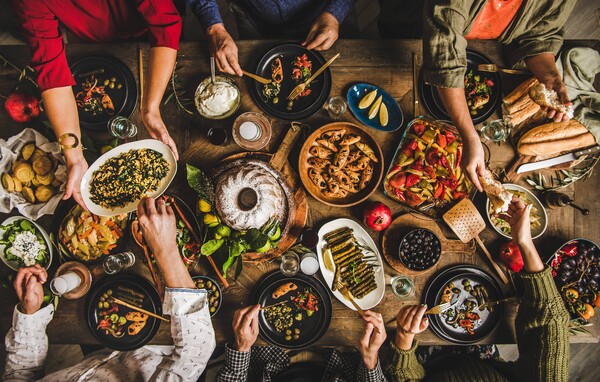[Jeong Jae-hoon's Column on Food & Drug]
Appetite tends to decrease in hot weather due to the body's homeostasis. Your body needs to maintain its temperature within a specific range, and consuming too much food can make this more challenging. This is because digesting, absorbing, and metabolizing food generates heat, which can interfere with temperature regulation. The thermic effect of food varies by nutrient: protein burns 20 to 30 percent of its calories, carbohydrates 5 to 10 percent, and fats 0 to 3 percent. On a summer night, it's not just the alcohol that can disrupt sleep after drinking beer with fried chicken, but also the protein in the chicken.

It's hard enough for your body to work in the heat without overheating. Eating high-calorie foods will only make it more difficult to regulate your body temperature. It’s natural for your appetite to decrease in the heat temporarily. If you ignore this and overeat, it can be hard on your body. For young, healthy adults, the occasional overeating isn’t a big deal. A 2020 British study looked at the effects of overeating on the body in 14 healthy adult men between the ages of 22 and 37. First, the participants were asked to eat pizza until they were full. The average intake was 1500 calories, just under a large pizza. On another day, they were asked to eat pizza until they couldn't eat anymore. The average intake was 4800 calories, which is almost 2.5 pizzas. However, when their blood was tested to see if there were any changes, there weren’t any significant differences. Blood glucose and blood fat levels were only slightly elevated in the overeating group compared to the full-eating group. The most notable difference was that participants felt drowsy and tired after eating too much, and their heart rate, insulin, and gut hormone levels increased after eating too much. The researchers concluded that in young, healthy adults, the body can adapt to a single overeating by working harder.
But it's different for people at risk of chronic disease. Even a single instance of overeating can be dangerous. According to the American Heart Association, overeating increases the risk of a heart attack just as much as extreme physical exertion or angry outbursts. This conclusion was drawn from surveys of people who had experienced a heart attack, asking them how much they ate 26 hours before the event. After eating more food than usual, the risk of having a heart attack two hours later quadruples. This makes sense, considering that metabolizing excess food increases your heart rate and puts more strain on your body.
In order to avoid overeating in the summer, it's best not to make your body work harder in the heat. In the past, we used to eat a lot of “energy food” to cope with the heat, but not anymore. Eating lighter, more frequent meals with watery, easily digestible foods like fruits and vegetables to replenish fluids and electrolytes is a better way to beat the heat.

Jeong Jae-hoon is a food writer and pharmacist. He covers a variety of subjects, including trends in food, wellness and medications. This column was originally published in Korean in Joongang Ilbo on Aug. 1, 2024. – Ed.
Related articles
- [Column] The best ways to enjoy summer watermelon
- [Column] How to beat the heat wave
- [Column] A well-balanced diet matters, not a single food
- [Column] When is the best time to drink coffee in the morning?
- [Column] Medications that cause dry eyes
- [Column] Exercise lowers the risk of anxiety
- [Column] Why you should take fewer pills
- [Column] Does the apple cider vinegar diet work?
- [Column] Olive oil and dementia mortality risk
- [Column] The science of cooking rice
- [Column] What you need to know about vitamin D
- [Column] Why it's good to eat cooked vegetables
- [Column] What Culinary Class Wars reveals about Korean society
- [Column] Foods that soothe our sorrow

